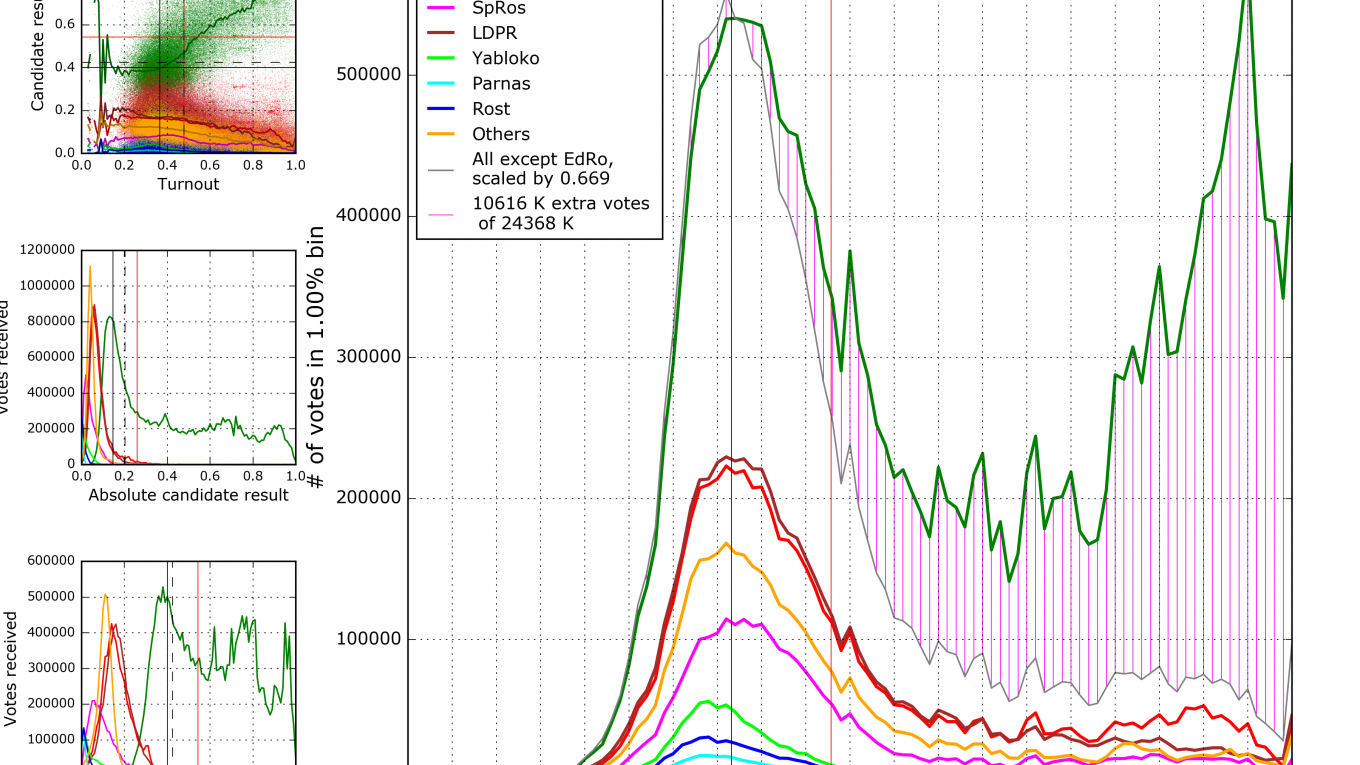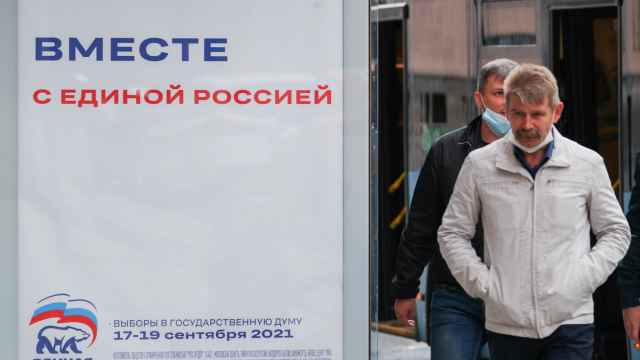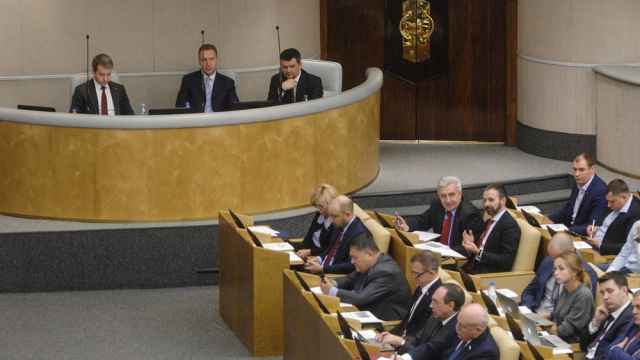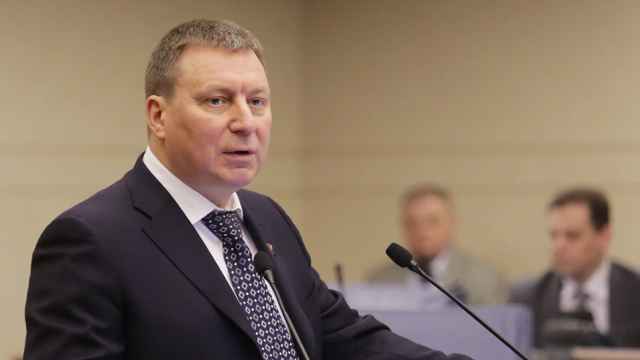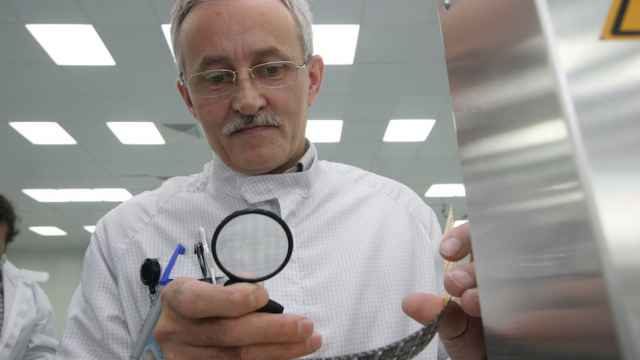Statistical analysis of this Sunday’s parliamentary election results appears to show evidence of some of the same irregularities that plagued the 2011 State Duma contest, according to the Slon news website. The outlet’s senior editor, Mikhail Zelensky, cites findings that suggest nearly half of all the votes recorded for United Russia, the ruling political party, may have been falsified.
According to the Central Election Commission’s official results, United Russia won a historic 343 seats in the next Duma, granting it a massive 76-percent supermajority capable of amending the constitution without support from any rival parties.
Zelensky highlights that United Russia’s performance on Sunday violates some of the statistical assumptions political scientists make about free and open elections, explaining that graphing turnout and voting distribution, as well as turnout and absolute votes, should yield a bell-shaped curve — a so-called Gaussian distribution. According to data from the Central Election Commission, United Russia’s results defy these expectations.
Russia’s three other major political parties (A Just Russia, LDPR, and the Communist Party) gained most of their votes at precincts where they won roughly 10–20 percent of the total. In other words, these opposition parties very rarely won more than 40 percent of the vote at any single voting station.
United Russia, on the other hand, won millions of votes in precincts where it captured more than 70 percent of all ballots cast, meaning that the party continued to earn enormously high numbers of votes even in places where nearly every voter supported United Russia (a bizarre phenomenon most spectacularly visible in Chechnya).
Russia’s party of power also managed to attract drastically more supporters in voting stations with higher turnout, unlike the other three major parties.
According to preliminary research by the Russian physicist Sergey Shpilkin, who published statistical evidence of widespread voter fraud in the 2011 State Duma elections, the natural bell curve of voter turnout compared to votes cast in Sunday’s election suggests that the true total turnout was just 37 percent — a whopping 11 percent lower (5.7 million votes fewer) than Russian officials claim.
If Shpilkin is correct, and you throw out the ostensibly falsified votes counted at precincts with turnout above 70 percent, then “corrected” election results are dramatically different from the official figures: United Russia’s share of the electorate falls from 54 percent to 40 percent, the Communist Party’s support rises from 13 percent to 18 percent, LDPR jumps from 13 percent to 17 percent, and A Just Russia wins 8 percent, instead of 6 percent.
In other words, Russia’s opposition parties could have won a slim majority in the parliament for the first time in well more than a decade.
A Message from The Moscow Times:
Dear readers,
We are facing unprecedented challenges. Russia's Prosecutor General's Office has designated The Moscow Times as an "undesirable" organization, criminalizing our work and putting our staff at risk of prosecution. This follows our earlier unjust labeling as a "foreign agent."
These actions are direct attempts to silence independent journalism in Russia. The authorities claim our work "discredits the decisions of the Russian leadership." We see things differently: we strive to provide accurate, unbiased reporting on Russia.
We, the journalists of The Moscow Times, refuse to be silenced. But to continue our work, we need your help.
Your support, no matter how small, makes a world of difference. If you can, please support us monthly starting from just $2. It's quick to set up, and every contribution makes a significant impact.
By supporting The Moscow Times, you're defending open, independent journalism in the face of repression. Thank you for standing with us.
Remind me later.


